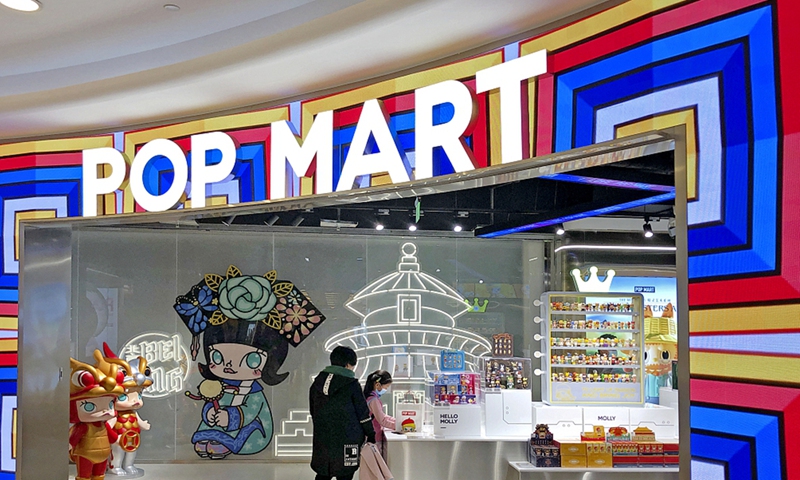China's Generation Z cares more about the environment and self-expression, showing stronger cultural confidence

Photo: VCG
Generation Z in China, those born after 1995 and known as zoomers, are not attached to buy big brands, but highly regard the core values behind them. They pay more attention to environmentally friendly consumption and value self-expression through cultural creative products, according to an investigation conducted by the National Business Daily (NBD).
NBD published a report, made in collaboration with subject matter experts and scholars, based on industry data provided by big data research institutes. The report determined a consumer profile of zoomers.
As the report indicates, zoomers care more about consuming environmentally friendly product.
Chen Zhaorui, born in 1996 and works in Beijing, told the Global Times on Wednesday that she would pay more for brands that care about climate change in their product design.
"I don't know what will happen if the global trend of extreme weather is not checked," Li said. She wants to make a small contribution with her daily consumption.
If an online store sells goods packaged with disposable materials, Chen said she would have more trust in the store and would choose to buy from it again.
Her top choice for ordering cakes in Beijing is the sweet shop that uses biodegradable packaging and cutlery.
According to NBD, the environmental rating by the community is also an important factor for young people to consider where to buy their department.
Gao Yuxin, a student in Beihang University in Beijing, born after 2000, said she rents daily cloths online to support the sharing economy.
"For some styles of clothes, I just want to try them for several times, so it is a waste of resource to buy them. Sharing your closet is a good way to save money and the environment," she said.
"There is no denying that young people of the Generation Z maintain stronger environmental consciousness. Environmental protection has even become a fashion icon for this generation. As a result, that the idea of protecting the environment has been naturally engaged into their consumption," Shi Wenxue, a Beijing based cultural critic told the Global Times on Wednesday.
Cultural Confidence
China chic, mystery boxes, bullet screen culture and lazy lifestyle are just examples of tags that paint a picture of the behavior of Generation Z consumers in China, who are willing to buy goods to show their spiritual characteristics.
Zoomers are more willing to show their uniqueness and express themselves through consumption, Shi noted.
As NBD reported, Chinese mystery box maker, Pop Mart, was listed on Stock Exchange of Hong Kong in December 2020, with a value of more than 100 billion yuan, thanks to the support of young consumers. According to Pop Mart, more than 90 percent of the trendy toy consumers are between the ages of 15 and 30, with zoomers becoming the majority of the market.
23-year-old Hua Kangjian, resident of Chengdu, Southwest China's Sichuan Province, loves to buy mystery boxes.
"This kind of surprise will bring me excitement. Luck and the random elements in the mystery boxes bring fun to my routine which makes me want to buy them," Hua told the Global Times. When he sees what other friends got, she also wants to have it.
Including trendy toys, many cultural creative products attract young people with China chic designs.
Zhao Junyi, a 22-year-old man living in Xi'an, Northwest China's Shaanxi Province, is addicted to China chic products.
"I used to feel that traditional Chinese culture is just something that elders like and has nothing to do with me. But after combining the traditional trend with a creative design, I became interested in the China chic products and understood that traditional Chinese culture can also be a cool thing," Zhao told the Global Times.
Shi stressed that young people of Generation Z seem to be more enthusiastic about traditional and national culture than previous generations. They have grown up in China's rapid development of the internet era, have a stronger cultural confidence and are willing to show Chinese traditional culture to others.


